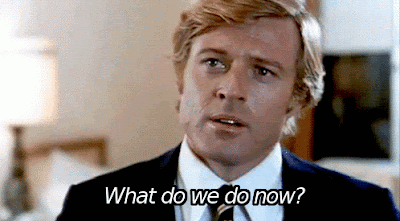 |
| Rami Malek as Freddie Mercury |
 |
| Freddie Mercury in concert |
There were many negative critiques of the film on its release, particularly about the handling of Mercury's sexuality, but that hasn't stopped audiences from finding and adoring the film. That may be partly because the power of the professional reviewer has waned — thanks to the internet anyone can review and rate anything these days. But the film's huge success may also reflect the modern audience's reaction to Freddie's sex and love life. Sexuality is viewed in a more fluid and open sense these days. In a key moment in the film Freddie confesses to his girlfriend and fiancée Mary Austin (Lucy Boynton) that he thinks he is bisexual, and she corrects him, "No, Freddie, you're gay." This interchange straddles the past and the present. People who lived through the AIDs epidemic and lost friends, lovers, and family may relate to Mary's needing Freddie to be true to himself and come out in an open way. Younger viewers may be seeing Freddie's lack of desire to define himself sexually as something they can relate to, and his subsequent AIDs diagnosis as a piece of history from the recent past. Bohemian Rhapsody's Freddie spends the film coming to terms with his sexuality, as it relates to his family, his religious and ethnic background, his status as a rock god, and his quest to balance sex and love.
Mary Austin: What do you want from me, Freddie?Freddie Mercury portrayed by Malek is flamboyant, outrageous, and larger-than-life — onstage. He seems happiest, most at home when he is performing before an audience. Queen's music spanned genres as diverse as arena rock, 50's doo-wop, and opera, and Freddie's exuberant vocals and stage persona are a match for any and every musical style. As I watched Malek recreate Mercury's signature posturing it became apparent that rock and roll lead singers, gay or straight, present themselves similarly as strutting sexual objects of desire.
Freddie Mercury: Almost everything.
Bohemian Rhapsody bookends its story with practically a shot-for-shot recreation of Queen's epic performance at Live Aid in 1985. To amp up the drama the film plays fast and loose with the facts, having Freddie receive his AIDs diagnosis right before the concert. In reality he was diagnosed with HIV in late 1986 or 1987. It also portrays Freddie's having a solo career as leading to the band's fracture, but Queen never broke up, and all the band members pursued solo projects at different times over the years. While the film does portray Freddie's long-term relationships with Mary Austin (who he is quoted as saying he considered her his common-law wife), as well as his partner at the end of his life, Jim Hutton (Aaron McCusker), it skips any other lasting relationships he may have had, apart from the aforementioned Paul Prenter, who is portrayed as a predatory user who was trying to control Freddie's career and limit his contact with the outside world by plying him with drugs and other distractions. Prenter, like Freddie, died in 1991. The film does depict Freddie's relationships that probably no one will argue with: his great and abundant love of cats, of which he had many over the years.
It's probably not possible to have a "true" film biography of anyone as iconic as Freddie Mercury. For all of his onstage campiness and theatrics he was also notoriously private in his home life. The surviving members of Queen — Brian May (Gwilym Lee), Roger Taylor (Ben Hardy), and John Deacon (Joe Mazzello) had been open to and involved in making a film about the band for ages. First in 2010, it was cast with Sacha Baron Cohen in the lead, who left the project. He was succeeded by actor Ben Whishaw, and director Dexter Fletcher, who both came and went. In 2017 Rami Malek stepped in to play the central role of Queen's lead singer Freddie Mercury, and Bryan Singer replaced Fletcher. During filming Singer left the project under a cloud (he was fired for "unexplained absences"), but he is still credited as director. Dexter Fletcher returned to finish directing the film after Singer left, and received an executive producer credit. Lots of changes, but also pretty typical for a Hollywood film.
I have wanted to see Bohemian Rhapsody since viewing trailers a year or so ago. It did not disappoint me or my fourteen year-old daughter, who had lots of questions afterward, about the 80s and AIDs as well as wanting to download every Queen song ASAP, and wanting to watch the original footage of the band's appearance at Live Aid. It's impossible not to walk away from the movie without marveling at the band's versatility and uniqueness and Freddie's amazing talent. Bohemian Rhapsody is uplifting and heartbreaking as it charts Freddie's course. Malek has appeared in many interviews detailing his preparation for the role, which included a movement coach and mastering some very impressive false teeth. But as marvelous as he is at portraying Freddie onstage, what leaves the biggest impression are his quiet moments, as he grapples with his needs and never-ending loneliness when he isn't onstage:
Jim Hutton: So all your friends have left you alone.
Freddie Mercury: They’re not my friends, not really. They’re distractions.
Jim Hutton: From what?
Freddie Mercury: The in-between moments I suppose. I find me intolerable. All of the darkness you thought you’d left behind comes creeping back in.





























